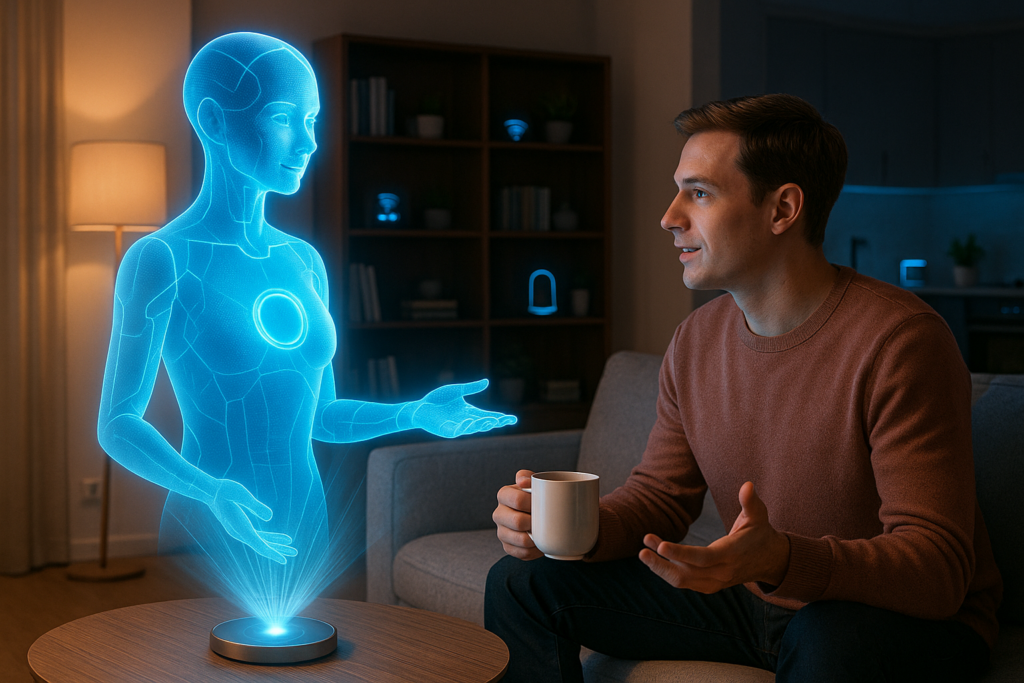As we move deeper into the AI revolution, one thing is certain: AI agents in everyday life will be far more common and influential by 2030. From personal assistants that anticipate your needs to smart systems that run entire homes or offices, AI agents will be deeply embedded in how we live, work, and interact. This transformation isn’t science fiction—it’s the future we’re building right now.
What Are AI Agents?
AI agents are autonomous software systems that can make decisions, learn from data, and interact with humans or other machines. Unlike basic bots or traditional automation, AI agents use machine learning, natural language processing, and sometimes even emotional intelligence to carry out tasks with minimal human input.
For example, an AI agent could not only book your doctor’s appointment but also monitor your health metrics and recommend lifestyle changes before you even feel sick. That’s how powerful and personalized they’re becoming.
AI Agents at Home: The Smart Living Revolution
By 2030, AI agents in everyday life will turn our homes into intuitive, responsive environments. Smart kitchens will suggest recipes based on what’s in your fridge. AI cleaning agents will automatically clean based on your daily routine and allergies. Energy use will be optimized without you lifting a finger—your home will learn your schedule and adjust lighting, temperature, and even security accordingly.
Imagine waking up and your AI agent has already brewed your coffee, adjusted the blinds for ideal lighting, and started a meditation session because it noticed you seemed stressed the night before.
AI at Work: Your Personal Digital Co-Worker
In the professional world, AI agents will become digital teammates. From managing emails, summarizing meetings, drafting documents, and handling repetitive tasks, they’ll allow humans to focus on creativity and strategic decision-making. Freelancers and entrepreneurs will have virtual AI project managers, designers, and marketers helping them scale faster than ever.
Expect AI agents to even predict workplace conflicts or burnout using emotional and productivity patterns—helping teams stay healthier and more efficient.
Healthcare, Education & Transportation—All Reimagined
AI agents in everyday life will transform healthcare with early diagnosis, real-time health tracking, and personalized medicine. AI nurses may assist elderly patients at home, while AI therapists offer round-the-clock mental health support.
In education, AI tutors will offer personalized learning paths. By understanding each student’s pace, strengths, and weaknesses, AI agents will help bridge learning gaps faster than traditional methods ever could.
Public transport systems will also benefit from AI agents managing routes, traffic flow, and maintenance schedules, making commuting smoother and eco-friendlier.
Challenges and Ethics to Consider
While the promise of AI agents is exciting, it comes with concerns: data privacy, algorithmic bias, and over-dependence. By 2030, regulation, ethical design, and user transparency must evolve alongside AI development. Users must know how decisions are made and have control over their data.
Conclusion
By 2030, AI agents in everyday life won’t just be tools—they’ll be partners, collaborators, and caretakers. Their presence will streamline routines, improve well-being, and help us lead more intentional lives. As long as we implement them with responsibility and empathy, the future with AI agents looks not only efficient but deeply human-centered.
